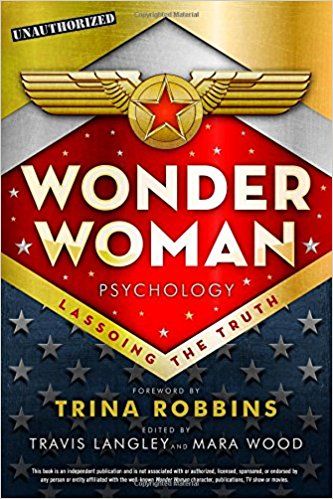Last night I saw “Wonder Woman” in the movie theatre. I already had high expectations of it from all the hype and the movie surpassed all of them. Here is why:
Warning: some spoilers to follow
Wonder Woman (AKA Diana Prince) grows up among the Amazon women, all of whom are incredible warriors. The movie passes the Bechdel Test, in having multiple women speaking to one another on the screen, their conversation focusing on a variety of topics (i.e., not necessarily on discussing men).
Diana is a fierce warrior but what struck me the most was not her outstanding fighting ability, but her sense of compassion. This was also true of “Wonder Woman” comics, in which Diana reminds Ares, god of war, that her compassion is her strength. In the film, Diana witnesses the suffering of the people affected by the war. She is visibly affected by this. The pain on her face and in her heart is apparent as she tries to comfort multiple villagers and is told that she cannot save everyone.
Diana appears to experience empathic distress, a condition in which someone might become overwhelmed by the suffering of others and feel helpless in the situation. If not addressed, empathic distress can lead to emotional (and possibly physical) burnout, which can potentially lead to depression and health problems.
Luckily, Diana addresses empathic distress head on – she finds a way to help, at least some of the people, at least in some of the ways. This allows for mutual benefits – both to the people she is helping, as well as to herself.
In watching Diana take charge in the Great War, I found myself deeply touched by this scene, as I was reminded of the current political events and recent London attacks. It is easy to become overwhelmed and feel powerless in situations like these. However, “Wonder Woman” serves as a great reminder that we can all do something. We can all stand for justice. We can all fight for love because love is the most powerful weapon.
If you enjoyed the movie, check out the “Wonder Woman Psychology” book, edited by Travis Langley and Mara Wood.
Keep superheroing and don’t forget your cape!
Dr. Janina Scarlet is a Licensed Clinical Psychologist, a scientist, and a full-time geek. A Ukrainian-born refugee, she survived Chernobyl radiation and persecution. She immigrated to the United States at the age of 12 with her family and later, inspired by the X-Men, developed Superhero Therapy to help patients with anxiety, depression, and PTSD. Her book, “Superhero Therapy” came out on December 1, 2016 in the U.K. and on August 1, 2017 in the U.S.
If you would like to learn more about Superhero Therapy, contact Dr. Janina Scarlet Twitter, Facebook, website, or Patreon.


Dr. Scarlet
Love your book! My grad students and I are presenting Geek Therapy 101 at the Association for Creativity in Counseling Annual conference in Clearwater, Fla. in September. My next column entry in Counseling Connoisseur ( found on Counseling Today Online)reflects on our Amazon princess and feminist psychology…
Maybe collaborate on work some day?
Dr. Cheryl Fisher PhD NCC LCPC ACS
Hi Cheryl,
Thanks so much for your kind words. That presentation sounds wonderful. Congrats and enjoy!
Sure, I’d love to! Let me know what you had in mind 🙂